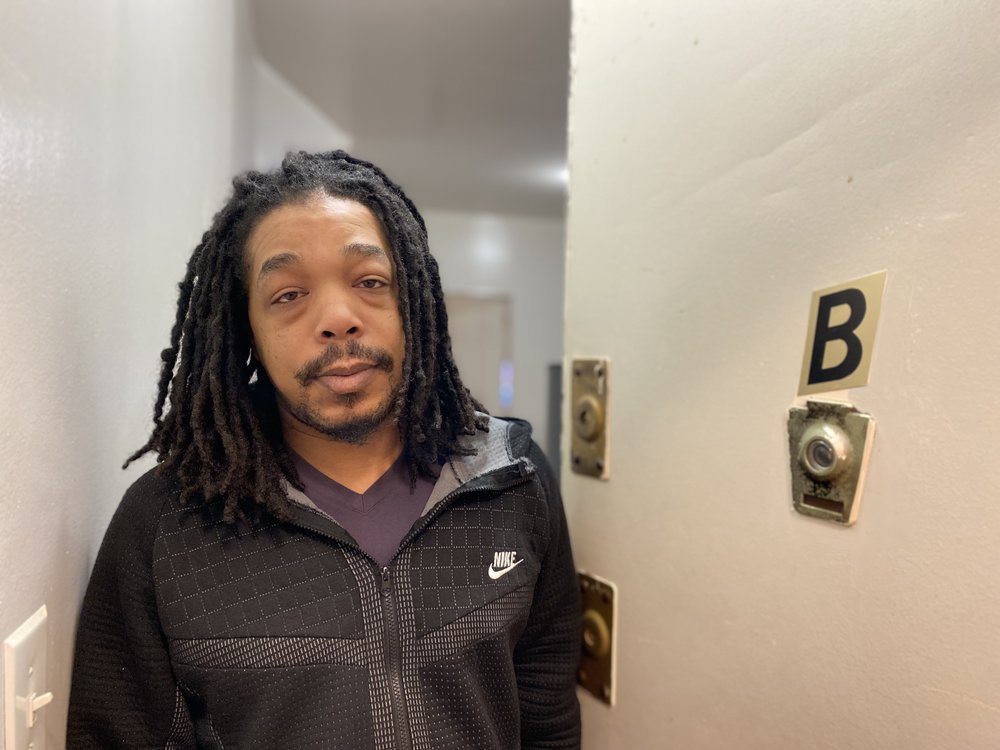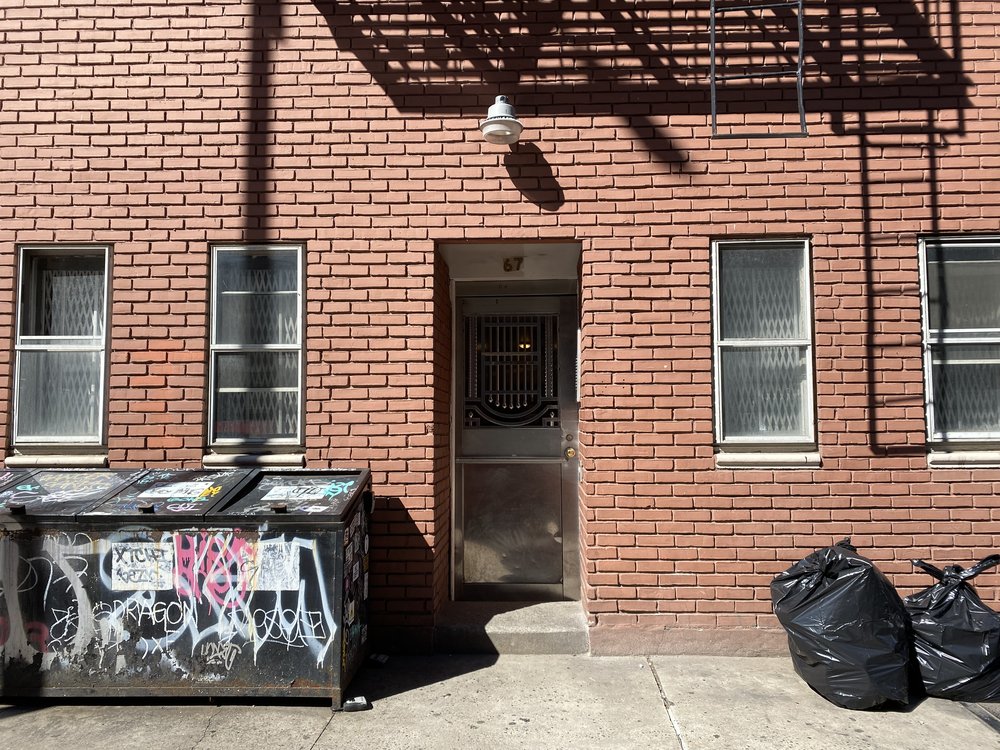Ex-homeless tenants face mass eviction by Lower East Side landlord
March 28, 2023, 6 a.m.
Eleven formerly homeless tenants moved into apartments with city assistance but now face eviction after their landlord refused to renew their leases once their grants were done.

A Lower East Side landlord who received more than $200,000 from the city in exchange for renting apartments to formerly homeless New Yorkers has filed to evict them, court documents show.
During a pandemic-induced slump in the rental market in 2021, the owners of a 20-unit building at 67 Pitt St. leased apartments to 11 tenants who were living in homeless shelters at the time. Those tenants qualified for a Special One-Time Assistance, or SOTA, grant that covered their rent for one year, with the payment from the city going directly to the building's landlord.
But after their leases expired, the landlord did not give the tenants the option to renew their agreements and rents went up by about $700, residents said. The landlord, 67 Pitt Realty LLC, filed to evict all 11 residents in January after residents stopped paying rent. The residents now say they are at risk of returning to shelters, pointing to gaps in the city's safety net programs and tenant protections.
“I’ll probably try to stay with a couple friends here and there or go back to the stupid shelter system,” said first-floor resident James Eley, 41. “I just want somewhere to live, where I can be comfortable and go to work.”
Under current law, landlords are not required to issue a new lease unless an apartment is rent-stabilized, even for tenants with the government subsidy that guarantees their monthly payments. The 67 Pitt St. apartments were taken out of rent stabilization in 1999, based on renovations made 15 years earlier, according to state records.
According to Kevin Duffy-Greaves, a supervising attorney with Mobilization for Justice who is representing Eley, the situation reflects a number of problems facing the city's low-income renters. These include a possible return to shelter for once-homeless tenants; a denial of a new lease; a nearly 50% rent increase; limits in the city’s right-to-counsel law (seven of the 11 tenants do not have an attorney); and the flaw in a housing subsidy meant to keep people in apartments.
Eley works as a security guard at a Queens housing complex and said the grant covered the $1,580 monthly rent starting in April 2021. He said he could have managed that amount without the subsidy and thought he would get that opportunity, but the owner never offered a new lease before hiking the monthly rent to $2,250 — a sum Eley said he could not afford.
Eley did not pay rent after receiving the termination notice and now owes thousands in arrears. He said he will become homeless again if he is evicted but hopes to negotiate a lower monthly rate and cover the back rent with additional city assistance.
The one-time grants are issued to people with jobs or other income that allows them to cover the monthly costs on their own once the subsidy expires.
“What these landlords are doing is saying is ‘We’ll take the free year of rent, we don’t care if you can afford it after, we’re just going to get rid of you,’” said Daniel Basuk, a staff member at Manhattan Legal Services, which represents two other tenants at 67 Pitt St.
The city’s Department of Social Services issues the grants and said officials were not aware of the problems or lease denials at the building. A spokesperson said the agency intervenes if tenants make complaints and refuse to rent apartments from landlords who do not renew tenant leases. About 1,200 apartments have been paid for with SOTA grants in the last two fiscal years, the agency said.
Tenants could qualify for assistance to cover their rent arrears, and new housing vouchers to help pay their rent moving forward — if the landlord would agree to issue new leases.
Eley said he wants to remain in the apartment despite worsening conditions. The heat is broken, and water flows from a hole in the ceiling above his toilet. Water damage is evident elsewhere in the unit, where paint ripples, and a flooded kitchen light fixture fails to turn on.
Down the hall, Eley’s neighbor Michael Perkins, a construction worker, said rats and roaches are persistent pests since he moved into the unit in 2021. Perkins said he had to patch a hole in his ceiling where vermin entered the unit and received a roach-infested refrigerator. He shared photos of bugs in the fridge, the ceiling hole and food packages he said were torn apart by rats inside his cabinets.

“Everything is in shambles and they don’t want to do nothing now, they just want to evict you,” said Perkins, who also had a SOTA grant to cover rent after leaving a shelter. “Now they want to throw someone out after they scooped up all their change.”
Michael Daniel, who was named the 31st “worst landlord” in New York City on the public advocate’s most recent watchlist, is named as the building’s managing agent in court documents. The opaque company that owns 67 Pitt St. is registered at an office in Florida, according to housing records.
Daniel did not respond to phone calls to his Harlem office. The landlord’s attorney Robert Ehrlich, a former member of the Rent Guidelines Board, said his client “does not litigate in the press.”
Livingston Management Services began overseeing the building earlier this month, according to paperwork posted in the hallway. Representatives for the company did not respond to emails seeking comment and information.
The SOTA program has faced past scrutiny for handing over large upfront payments to owners of apartments in egregious condition and eliminating any incentive for them to maintain the buildings. The city changed the rules in 2021 to better inspect apartments, verify tenants’ ability to pay rent once the voucher expired and move money into an escrow account rather than turning it over to landlords all at once.
Under current state law, landlords are not required to issue a new lease unless an apartment is rent-stabilized — a situation fueling a push for protections against evictions without “good cause.” The legislation, which is opposed by Gov. Kathy Hochul and the real estate industry and appears unlikely to pass, would force landlords to offer a lease renewal in most cases and allow tenants to challenge hefty rent increases.
Duffy-Greaves said the Good Cause legislation before the state would give residents the best chance to remain in their apartments.
“We have a couple tenants in the building who would be willing to pay the full rent,” he said. “They just want a crack at getting a lease.”